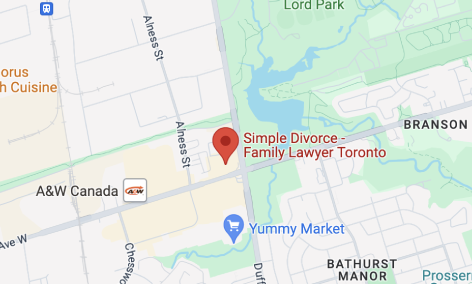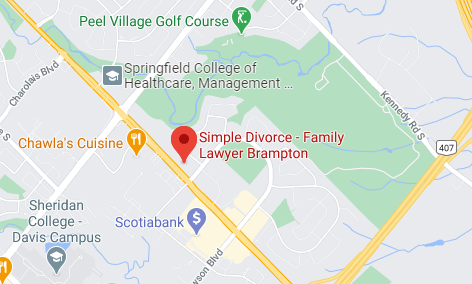Retroactive Child Support
After a married couple’s separation or divorce in Ontario, or a separation from a common law relationship, parents have a free-standing obligation to pay child support in accordance with their income. This obligation exists independent of a court order or legislation. If a payor parent (the one paying child support) is paying little to no child support, the recipient spouse (the one receiving child support) may go to court to decide on retroactive child support. Retroactive child support is simply back dated child support which one spouse should have paid during a past period.
A courts may order one parent pay the other retroactive child support where:
- A court order for child support already exists, but the income of the person who pays the support has increased, and the existing order does not reflect the increase; or
- There is no court order but the parties have agreed to make support arrangements for their children but the arrangements were unreasonable, particularly in light of the Federal Child Support Guidelines; or
- There is no court order, but no child support has been paid, which in retrospect should have been paid.
The Leading Cases
The Supreme Court of Canada’s (SCC) decision in DBS v SRG; LJW v TAR; Henry v Henry; Hiemstra v Hiemstra, 2006 SCC 37, [2006] 2 S.C.R. 231 [SRG], articulates the test for determining whether retroactive child support payments should be ordered, and if so for what period of time, and in what amount.
In doing so, the SCC adopts a holistic approach and states each case should be decided according to its particular facts. This approach depends on the specific legislation that applies to a specific case and the exercise of a judge’s discretion. Ultimately, a judge must balance the payor parent’s interest in certainty with the need for flexibility and fairness to the child.
The SCC outlines four factors that judges should consider when determining whether to order retroactive child support. First, a court should consider the reasons for the recipient parent’s delay in seeking child support. Unreasonable delay in seeking and increase in child support would weigh against a retroactive award.
The second factor is “blameworthy” conduct attributable to the payor parent. The SCC defines blameworthy conduct broadly and suggests that it can be “anything that privileges the payor parent’s own interests over his/her children’s interests to an appropriate amount of support.” When there is a valid agreement, the payor parent is presumed to be acting reasonably if they conform to it. However, the presumption can be rebutted if there has been a change in circumstances that warrant an increase in support,
The third factor is the past and present circumstances of the child, including the child’s needs at the time the support should have been paid. A child who already has a high standard of living may not gain much benefit from a retroactive award as would a child in need.
Finally, the court considers whether the retroactive award might entail hardship for the payor parent because retroactive support payments could disrupt the financial affairs of the payor parent.
Once the court determines that a retroactive child support award should be ordered, the amount of the award depends on the date of retroactivity and the amount representing what the payor parent should have paid during that time. SRG outlines four options to determine the date of retroactivity as the date when:
- An application was made to a court
- Formal notice was given to the payor parent
- Effective notice was given to the payor parent
- The amount of child support should have increased
Generally, a retroactive child support award should be retroactive to the date of effective notice was given to the payor parent, but to no more than three years in the past. Effective notice requires the recipient parent to bring up the topic with the payor parent; the recipient parent does not need to take any legal action. Once that has occurred, the payor parent can no longer assume that the status quo is fair. However, where the payor parent has engaged in “blameworthy” conduct, the date when the circumstances changed materially will be the presumed start date of the award. Finally, the court must ensure that the amount of a retroactive support award is consistent with the statutory schemes in place and that it fits the circumstances of each case.
What This Means For Payor and Recipient Parents
Ultimately, this case makes it clear that parents have an obligation to pay child support in accordance with their income that is independent from a court order or legislation. The amount of support must be reasonable in light of the child’s needs. As such, a court may order retroactive support if the payor parent has failed to live up to this obligation.
In the case of an existing support order or agreement, it is mandatory on the payor parent to ensure that the current support is adequate and reasonable. This means that if there has been a change in circumstances such as an increase in income, the payor parent should adjust their support payments accordingly. Further, a payor parent can’t just sit back and do nothing if the recipient parent brings up the subject of increasing support payments. Finally, payor parent should not engage in “blameworthy” conduct because it may weigh against them in court.
The recipient parent should bring an application for retroactive support in a reasonable time because unreasonable delay may weigh against them in court. Additionally, if the payor parent does nothing once effective notice is given it is important that the recipient parent continue discussions about child support.
Due to the various factors that apply when determining whether to grant a retroactive child support order, and because judges must take a holistic view when considering the facts of each particular case, judges have approached cases in a fact-specific manner. Accordingly, it is difficult to predict the outcome of any given set of facts. It is important to seek legal advice from a Toronto divorce lawyer regarding the facts of your particular case.
For more information about retroactive child support, or about obtaining a divorce in Ontario, please contact our Toronto divorce lawyer.
NOTICE AND DISCLAIMER: The material posted on this website is for informational purposes only and should not be relied upon as legal advice. If you are in need of legal advice relating to your particular situation it is highly recommended to consult with a lawyer.
Helpful Resources:
Divorce and Separation
Family Justice Services
Child Custody and Access
Spousal Support
Child Support
Division or Equalization of Family Property
Treatment of a Matrimonial Home
Enforcement of Support Payments
Child Protection
Child Adoption



